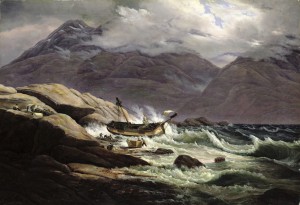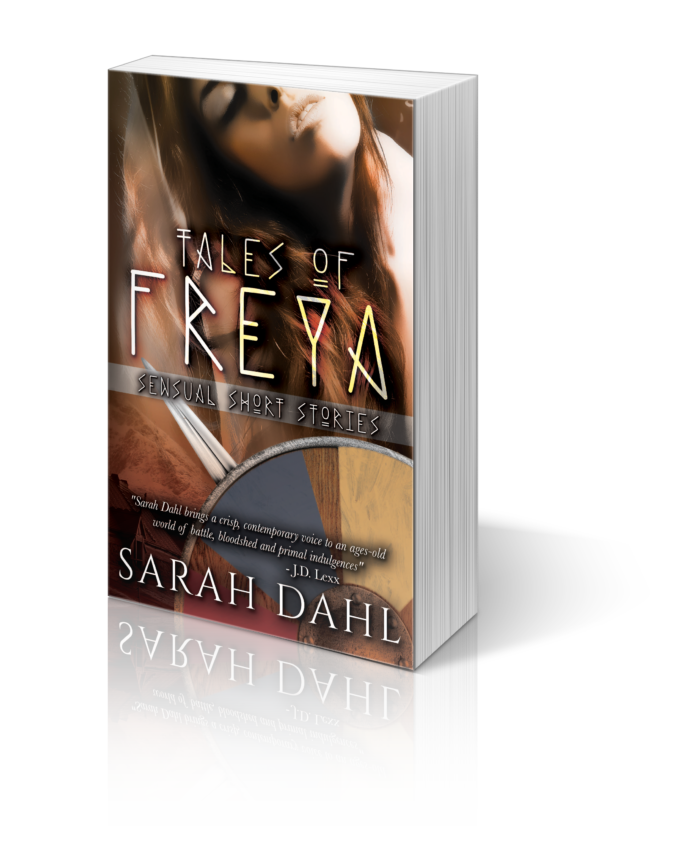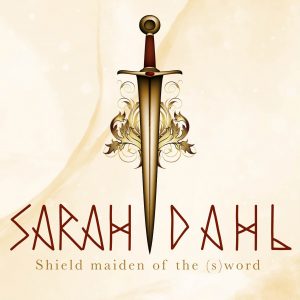Hey, writer, that’s not realistic …
Or: Artistic freedom in historical fiction
Following my post about which internal obstacles sometimes restrain me (or why I shy away where I shouldn’t) I also encounter instances where I’m challenged externally, from outside “forces”.
The immense value of beta-readers and experts
These “forces” are my most valuable helpers: the beta-readers and experts on my writing era, the Viking age. I’m lucky to have a lovely group of beta-readers who check my work early on to give me feedback on the writing as such, characters, plot and any faults or flaws I need to tackle. I can hit them up with anything, which is a real blessing.
I can only recommend that you build your own group of betas, including experts on the topic you write about, and go for a mix of different “reading eyes”. At the moment, I have a pair of each: Out of the 6-7 betas, I have half men and half women, authors and editors/readers, Viking experts and some who are just interested in the genre. Two of them are non-native, two are US and two UK-natives.
I’m so totally lucky to have someone for any question that might occur, and I can ask the men different things from the women, the fighters different from the writers, or the Viking experts from the pro-editors/readers … It’s a wonderful combination of minds, and I could hug them all SO hard for their great feedback. They take any problem seriously and answer quickly, in-depth and also personal. I hope they know how cool they are. You’ll all get Christmas presents, I promise! 😉
In turn, I try to be of equal help to them with their writing.
Having such a great bunch of “experts” in all respects at hand also means that we engage in tough discussions about logical/realistic aspects in the writing. I get questions like “Would a warrior really dare to sneak into another warrior’s house like that?”, “Would a Viking father really treat his daughter so badly for this?”, “Would an arrow-wound really be treated like that?” etc. For every (even short) story we have these discussions — and it’s great.
Some of the questions can be answered quickly, by re-checking historical facts (thank you, Tom, for the long list of herbal remedies you tested yourself! I have it all written down in a reference-list) or just discussing probabilities (thank you, John, for the in-depth discussion about bastard children and child exposure!). In the latter instance I had a Viking museum source (Hedeby, what else) to back up my interpretation for the story.
This way all of us can learn something new, what a pleasure!
Of course, sometimes we can’t agree on a “realistic” or “correct” interpretation, and I just collect opinions (thank you, Dan and Tom, for your vital “fighter’s” input on carrying the wounded! I went for a mix of both your suggestions). Then I try to make up my mind, travel back to my characters in my head and let them act in what I feel seems the right way — for the story and their personalities.
But.
What if “history” contradicts your story-idea?
I think we can agree that we’d rather write/read an exciting story that is a little “carefree” with historical details than a boring story that is all correct. I often write a short story idea down, all energised and happy, but then I re-check the idea for historical plausibility and have to stop. Wait a minute. Could this have happened like this?
 There are instances when we can’t agree on, or I can’t agree with, an interpretation, because for my story I need a certain behaviour, interior, item or whatever to make the idea work. When there’s no historical finding or opinion to guide me, it gets really tough. Some questions I ponder for days, because it’s always risky to go out on a limb and say: this is what happened in MY story!
There are instances when we can’t agree on, or I can’t agree with, an interpretation, because for my story I need a certain behaviour, interior, item or whatever to make the idea work. When there’s no historical finding or opinion to guide me, it gets really tough. Some questions I ponder for days, because it’s always risky to go out on a limb and say: this is what happened in MY story!
I’d often justify my ideas by arguing people were/are always individuals and MOST things could have happened, as long as there was someone daring to do it. Or in my story s/he uses original means/actions modern scholars don’t see as general usage/behaviour. But I argue that just like today there have always been the quirky, original characters, someone who breaks ranks. As long as we can imagine a historical person of the time doing what I write, it’s fine. Of course, it all has to stay within the boundaries history sets, but still, it is a gamble:
Do I interpret too much into something? Is my character/action/description unrealistic?
In other words: how much freedom does a historical author have?
I don’t claim to be “the” expert and know it all, and therefore I can’t get it all 100-percent right and accurate, and I want to avoid writing boring accounts of history that can be better told via scholarly publications. And yet we know that readers of historical fiction (myself included) are tough in that they spot unrealistic interpretations at once and get annoyed or even put the book down. I did, sometimes. I become impatient if I read about a wrong interpretation or solutions to problems that are far-fetched and badly executed.
So I have to meet my own criteria in my writing. Problem: I often have a cool, exciting story idea I want to set in my preferred era, I write it all down, it’s action-packed and emotional — and then — I re-think. Or very often I “overthink”, I want to be too accurate and lose some of the momentum of the original idea, as some betas of mine discovered. So what do I do?
Make it all “accurate”, but lose some of the vibrancy of a tense read, for the sake of being “correct”? Or should I rather “just write” and only avoid major mistakes that obviously don’t fit the time and society?
I’m not sure how to answer all these questions. We probably “know” only the tip of the iceberg, and the majority of historical and social facts is unexplored, giving writers even more scope for interpretation. I could say: prove to me that this could NOT have happened!
I’ll give you an example.
The shipwreck-story gone shipwreck
I have this long short story about a group of Viking explorers who shipwreck before they can reach the “new lands”. This definitely has happened, but is rarely mentioned in historical textbooks. I wanted to give those unlucky explorers a face and emotions, as real people. So my story idea was to zoom in on their horrible experiences on that rocky nothing in the churning sea where they barely manage to survive, but for how long and how can they go on? Some die, some go mad. But suddenly there is rescue on the horizon! What emotional turmoil this must have been. All the devastation and then there’s hope, a new perspective!
But I wanted this short story to have a punching ending, something unexpected. Not just: “Look, a ship! We’ll be saved!” So I made their rescuers hostile, or at least, they take advantage of the starving people (especially the women, as was often done). Instead of happy-ever-after, the newcomers would rescue the men and women’s lives, but for a steep price. They wouldn’t take them to the promised lands, unharmed. They’d take them back eastwards, and into slavery. To end the story with the question: is everything better than to starve in isolation? What would my Viking protagonists say?
Dang. Right then. Could this have happened?
I’m not sure. Explorers definitely went off course and shipwrecked, even the best Viking navigator couldn’t avoid a storm or breaking material. Some would have starved on rocky islands, robbed of their equipment, or they could have been found and rescued. BUT: could the rescuers have made them slaves, as in MY story? Who would those “rescuers” have to be? Where would they have come from and where would they take their victims?
Or are the starving no longer victims, as long as they are off that island and fed? What was the people’s mindset? How would THOSE people have felt? Would a Viking rather die than go into slavery? Men and women alike? Would individuals of the time think differently about that? What does that mean for my story idea?
Maybe it takes just the ONE singular asshole captain of the rescuers, who just likes to enrich himself /doesn’t care about others to make my story work — and plausible!
Is creating original individuals the solution?
As a writer and master of my writing universe, I can always create that single individual whose character traits and original approach I need in order to have a story idea come together. But does that mean the story is a success? Especially in historical fiction? It’s a fine line to not let that artistic freedom bust the whole story — because it gets too unbelievable.
But then: even my favourite shows have created incidents, characters and time-frames that are very “creative” (no, I’m not thinking History Channel’s Vikings here …) And still, it can work and draw even expert audiences in and entertain on a very scholarly level. With the help of artistic freedom. It’s entertainment, not a textbook account of events.
So over to you: does it take a certain writing genre in which you can or cannot use more or less artistic freedom? Do we need a certain audience? A certain story-type? Let me know how to solve this, and what to do with my story! HELP! 😉






Comments (2)